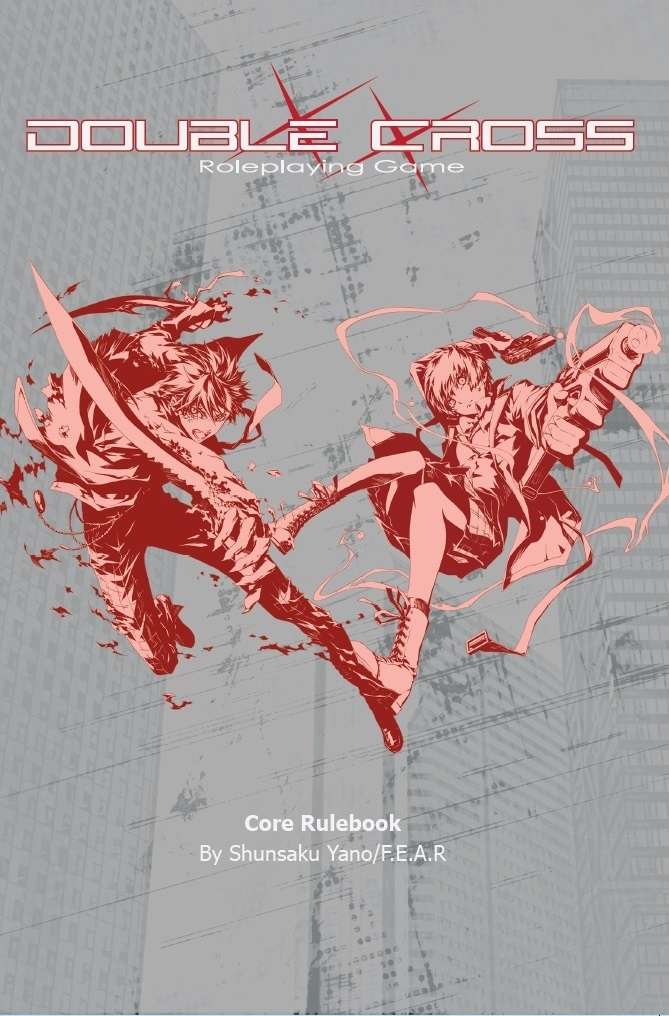I started to feel that I didn’t know roleplaying games well enough so I came up with the plan to read a roleplaying game corebook for every year they have been published. Selection criteria is whatever I find interesting.

Double Cross is a Japanese roleplaying game. It’s first edition was published in 2001 and the English translation released in 2013 was based on the game’s third edition. It’s a horror-inflected superhero game in which the Renegade Virus has infected humans, turning them into Overeds who have strange, extravagant powers. The Overeds are in danger of being completely overwhelmed by the virus, becoming Gjaums, monstrous and inhuman creatures. They’re only kept in check by their Loises, attachments to people or things that can sustain feelings of meaningfulness.
In this sense, the game almost feels like a crossover between Vampire: the Masquerade and the X-Men.
In the setting of the game, the Overeds (player characters among them) live in secret among humanity, grouped into organizations with varying agendas. There’s a global clandestine organization seeking to fight against the Gjaums and a villainous counterpart called False Hearts.
The player characters don’t necessarily have to make up a close social group. The example adventures feature characters such as a high school student who’s secretly an Overed and an officer serving in UGN (Universal Guardian Network), tasked with surveying young Overeds at the school.
They’re reliably brought together because the game is based on very clearly defined scenes involving one or more characters. Thus, the GM will be able to start a scene on the premise that this is when the student and the officer both turn up for a specific event. This impugns on player freedom but makes the game run faster, avoiding meandering.
There are a few interesting game mechanical touches. Each character has an Enchroachment score, measuring how close they’re into becoming a Gjaum. Pretty much everything in the game increases the score and a high value also makes the character more powerful. However, if the score is too high at the end of the session, the character is lost. Or would be, except for a mechanism where the player can lower the score between sessions essentially by accepting lesser XP rewards.
Your Enchroachment score also increases every time you enter a scene.
XP accumulates to the player, not the character. The player should keep a tally of total XP gained in play and if their character dies, they can make a new character with this same XP total. I found this interesting because it’s a rare example of a roleplaying game mechanic where mechanical attributes are expressly attached to the player’s person.
The playstyle suggested by Double Cross features quick, dramatic scenes in a fairly railroaded scenario, intercut with mechanically complex combat. One thing that gives it distinctiveness is its focus on drama. Violence and high emotion go hand in hand. At one moment, you’re punching the Gjaums and the next dealing with the emotional fallout of having your high school crush mindwiped by the organization supposed to protect you.